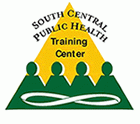
Resilient Leadership: Building an Organizational Culture of Resilience
Course Description:
This course provides an overview of the nature of and practices which constitute "resilient leadership." Resilient Leadership may be thought of as the attitudes and practices which may serve to create a "culture of resiliency" within a given organization. Such a culture promotes mutual support and success while viewing adversity as opportunity.
Target Audience
Academic Faculty/Staff, Federal Government Employees, State Government Employees, Local Government Employees, Non-Government Employees and Students
Learning Objectives
- Define "resilience"
- Define "resilient leadership"
- Discuss the four "pillars" of "resilient leadership"
Instructor:

George S. Everly, Jr., PhD, ABPP
George S. Everly, Jr., PhD holds appointments as Associate Professor (part time) in Psychiatry at the Johns Hopkins School of Medicine, Professor of Psychology at Loyola College in Maryland, and Associate in Public Health at the Johns Hopkins Bloomberg School of Public Health, and he is a member of the Johns Hopkins Center for Public Health Preparedness. He has held honorary professorships at the University of Hong Kong, Universidad de Flores (Argentina), and Universidad de Norbert Weiner (Lima, Peru). In addition he serves on the adjunct faculty of the Federal Emergency Management Agency and the FBI’s National Academy at Quantico, Virginia. He is a member of the CDC Mental Health Collaboration Committee (having chaired the mental health competency development committee), the Infrastructure Expert Team within the US Department of Homeland Security, and the NVOAD Emotional & Spiritual Care Committee, as well as the NVOAD Early Psychological Intervention subcommittee. He is an advisor to the Hospital Authority of Hong Kong. Dr. Everly is co-founder of, and serves as a non-governmental representative, to the United Nations for, the International Critical Incident Stress Foundation, a non-profit United Nations-affiliated public health and safety organization. He was formerly Distinguished Visiting Professor, Universidad de Flores (Argentina), and was Senior Research Advisor, Social Development Office, Office of His Highness, the Amir of Kuwait, State of Kuwait. Prior to these appointments, Dr. Everly was a Harvard Visiting Scholar, Harvard University; a Visiting Lecturer in Medicine, Harvard Medical School; and Chief Psychologist and Director of Behavioral Medicine for the Johns Hopkins' Homewood Hospital Center.
Available Credit
- 2.00 Participation/CETulane Professional and Continuing Education (PaCE) awards 2.00 hour(s) of credit for completing Resilient Leadership: Building an Organizational Culture of Resilience
Price
Required Hardware/software
System Settings
This course is designed to work most effectively if your computer and internet connection meet certain minimal requirements. This course can be accessed using a Windows 10 PC or a Mac with High Sierra1, Mojave, or Catalina. Pop-up blockers should be disabled when viewing the course. Internet Explorer 11 (for Windows 10), or the current version of Google Chrome, Mozilla Firefox, or Apple Safari (for Windows 10 and or Mac) is required. Many of our courses require Java and JavaScript enabled.
Links to External Websites
Links to websites outside this course will open in a new window or tab. Some browsers may minimize the course window. If this occurs, maximize the course window to return to the course.
Adobe Acrobat Reader (for desktops and laptops)
Adobe Acrobat Reader is required to access some documents in this course. If you need to download a free copy of Acrobat Reader, click here.
Internet Connection Speed
A minimum download speed of 1.5 Mbps is recommended for an optimal experience, which is commonly the speed associated with a basic DSL or a cellular/satellite connection. A faster connection, such as cable or fiber service, with further enhance your online experience. A Wi-Fi connection is generally acceptable, but it is dependent upon one of the two services mentioned above. You can check your internet connection speed at http://www.speedtest.net/.

 Facebook
Facebook X
X LinkedIn
LinkedIn Forward
Forward